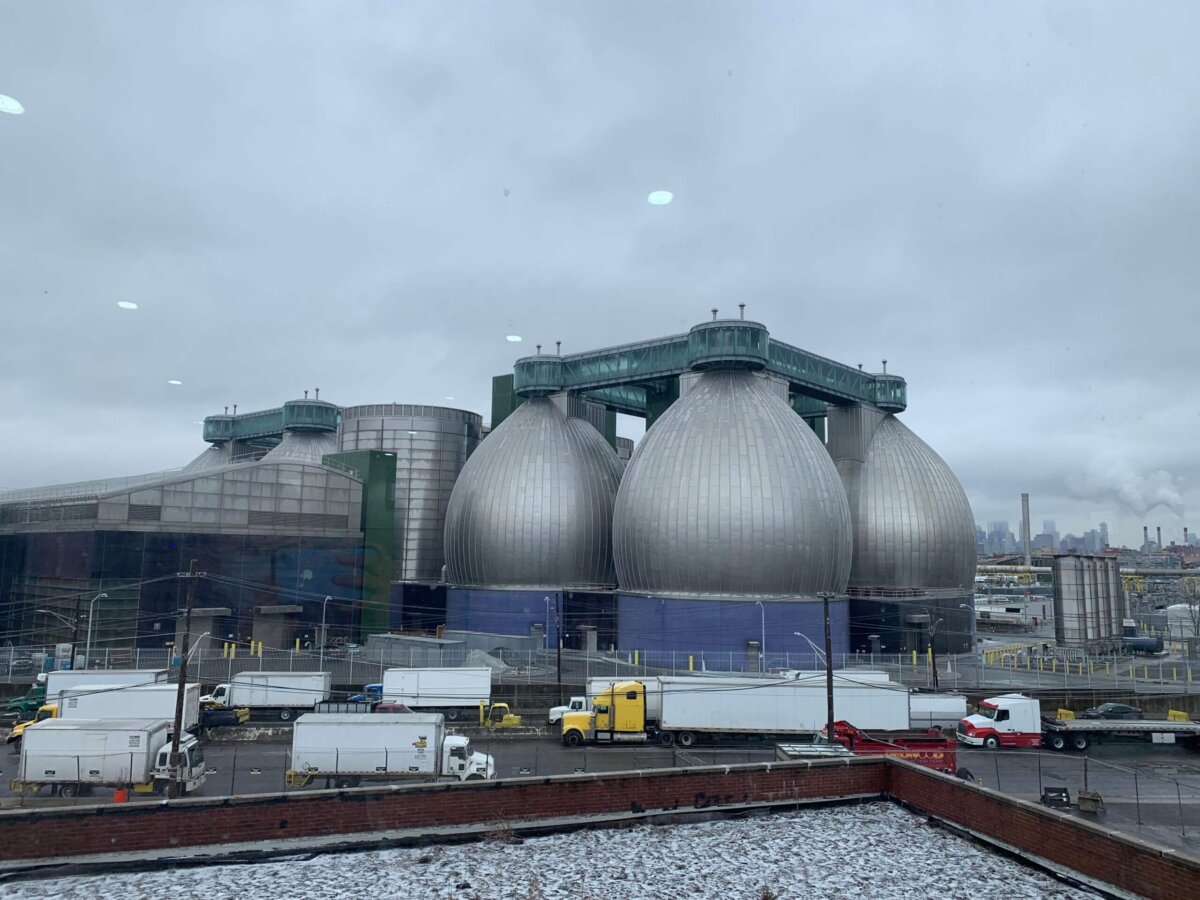A first-of-its-kind renewable energy project in Greenpoint has become a point of contention between the community, the city, and utility giant National Grid.
The renewable-biogas-to-grid project at the Newtown Creek Wastewater Treatment Plant — a partnership between the city’s Department of Environmental Protection and National Grid — has been touted as an “innovative project” that would reduce carbon emissions and save local National Grid customers some cash.
But years of delays, equipment issues, and new questions about the financials of the project – and how it will really impact ratepayers – have left local environmentalists frustrated at best.
Biogas and the grid
The partnership was first announced over a decade ago, during the Bloomberg administration.
Eight massive “digester eggs” at the Wastewater Treatment Plant to process at least 250 million gallons of wastewater and 220 tons of organic waste each day, according to the DEP, which operates the plant. The eggs turn the waste into a refined “slurry” used for composting. A byproduct of that process is biogas — a form of natural gas composed mostly of methane.
DEP uses about 40% of that biogas to power the treatment plant, and, with the new gas-to-grid project, the remaining 60% is given to National Grid for free to be refined and added to the company’s supply.
According to DEP and National Grid, at max capacity the plant produces enough biogas to heat 5,200 homes, and keeps 90,000 metric tons of greenhouse gas out of the atmosphere each year.
Before the project came online, DEP would “flare,” or burn off, the excess gas. The partnership with National Grid was set to launch in 2015 — but didn’t actually come online until March 2023, to the consternation of the community.
City officials “cut the ribbon” on the project three months later, last June, and said that with National Grid’s involvement, “essentially 100 percent of the biogas” would be put…
Read the full article here

Leave a Reply